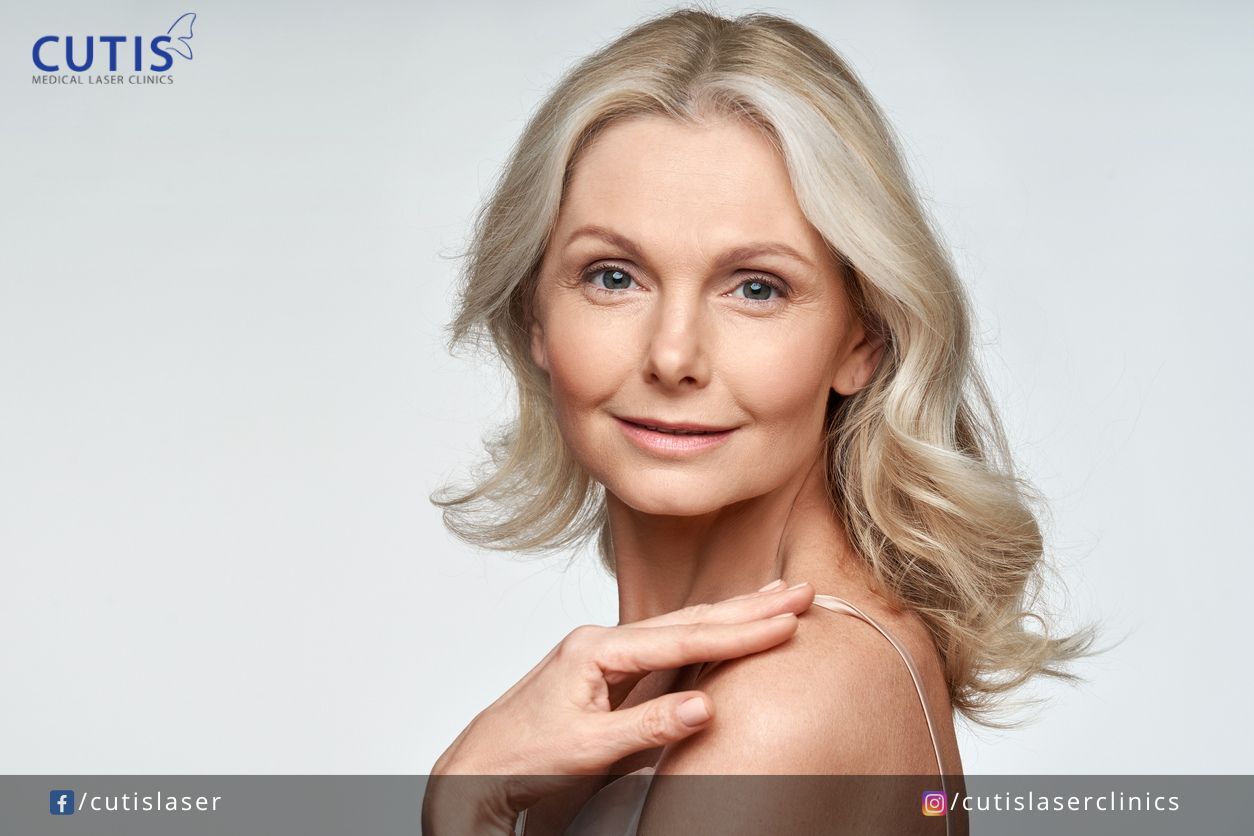When it comes to aging and other aspects of life, it is easy to focus on the negative. Many of us fixate on our few gray hairs and worry about fine lines and creases that don’t seem obvious or other signs of aging that are not actually that big of a deal.

So, to turn things around, we’ll focus on the positives or the signs that your skin is aging well. We’ll also throw in some tips and tricks that can help you age well and joyfully.
Smooth skin texture
The natural aging process causes our skin to become thinner and less elastic. This can then contribute to dry, itchy, and rough skin, or in some cases, a crepey appearance. Those who are aging well, however, may notice a supple and smooth skin texture most of the time. This can be due to a lack of sun damage, as well as having hydrated skin or a regular moisturizing habit.
Having a good skincare routine that includes gentle cleansing, moisturizing, and sun protection can help maintain smooth and supple skin. The same is also true for incorporating healthy habits such as eating a balanced diet, managing stress, and getting enough sleep.
At Cutis Medical Laser Clinics, we have Laser Skin Rejuvenation, a non-invasive procedure that promotes vibrant skin and improves uneven skin texture. It gently heats the deeper layers of the skin to stimulate collagen formation, which can then plump and smooth the skin. It can help with:
- Uneven skin texture
- Enlarged pores
- Scarring
- Facial redness
- Fine lines and redness
Minimal brown spots or discoloration
Damage or skin changes from sun exposure are cumulative. They can manifest as dark spots and hyperpigmentation, as well as dullness. Having an even skin tone or a more balanced complexion is another sign that your skin is aging well. You may have minimal pigmentation or sun spots and not so obvious skin discoloration.
Blue light, which is present in sunlight and electronic devices, can also cause discoloration. Our exposure to it increases as we like to use our phones and other devices so close to our faces. Excessive blue light can lead to redness, swelling, as well as pigmentation, particularly in darker-skinned people.
The remedy, of course, is to limit sun exposure, especially when sun rays are the strongest. Wearing sunscreen daily is a must, as well as accessorizing with glasses and a brimmed hat. It is also helpful to cut down screen time if possible or use your phone’s night setting (night mode). This limits blue light and uses warmer colors, making the light gentler on your eyes.
If you have pigmentation that you wish to fade or lighten, Dermamelan at Cutis is worth considering. This depigmenting treatment lightens visible pigmentation and helps regulate melanin overproduction to prevent the reappearance of dark spots. It includes an at-home protocol that involves applying complementary products for four months for long-term pigment regulation.
Volume or fat in the face
It is normal for our facial fat to lose volume and shift downward with age. This then causes our features that were previously round to sink and skin that was tight and firm to sag or get loose. Having a good facial volume or a bit of chubby cheeks as you age is a good sign that your skin is aging well.
Factors such as sun exposure, smoking, poor diet, and not getting enough sleep can speed up the decline in the production of collagen and elastin fibers. These negatively affect your facial volume, which then decreases elasticity and increases laxity. Facial volume loss may show up as flattened cheeks, hollow temples, sunken-in eye sockets, and jowls.
Facial fillers can restore and add volume to give your skin a firm and plump appearance. Hyaluronic acid or HA-based fillers can shape the face and reduce or soften the look of folds and creases. There are also HA fillers that are used for sculpting the lower face and creating more definition on the jawline.
Faster wound healing
Wound healing takes much longer with age. This is because the body’s natural capacity diminishes and there are fewer stem cells and growth factors in the skin. So, if your skin heals quickly from an injury, it may indicate that you’re aging well and have good genes or a healthy immune system. You may also be eating well or have a diet that promotes healing.
So, what are the signs that your wound is healing well? When there’s a wound, the body forms a clot to stop bleeding and then a scab forms over it. There may also be swelling, pain, redness, or discharge (prevents infection) for about 5 days. As the wound heals, there is new tissue growth and a scar may form.
Basic cuts and scrapes that heal within a few days to a week are a good sign. For more serious wounds, it can take about four to six weeks. Skin hydration and nutrition help with faster wound healing. It is important to moisturize skin daily and eat a diet rich in protein to facilitate cell growth and repair.
You’re a non-smoker
As smoking damages nearly every organ of the body, not engaging in the habit your whole life gives your skin and body a chance to age healthily. Smoking increases your risk of certain diseases, as well as speeds up aging, resulting in prominent wrinkles, dry skin, and sallow complexion.
Continuing to smoke as you age degrades collagen and elastin, resulting in visible signs of aging. These include uneven skin tone, deep facial wrinkles, and loss of elasticity. This is also the reason why it is common for the skin of a 40-year-old heavy smoker to resemble that of a 70-year-old non-smoker.
It is best to never start smoking. And if you’re a smoker (even occasionally), it is never too late to quit. Studies suggest even those who have smoked for decades will immediately notice improvements in their health and how they feel.
It is not possible to turn back the clock completely, but there are things you can do to slow down some signs of aging. The goal is not to treat every sign you have, but to get subtle treatments for a more refreshed, energized, and confident appearance. Contact Cutis today and schedule a consultation with our aesthetic doctor to find out how we can help.
- If you would like to be an informed patient, please contact us at +65-6801-4000 or
hello@cutislaserclinics.com. - Cutis Medical Laser Clinics, 9 Scotts Road Pacific Plaza, Scotts Medical Center #08-07, Singapore – 228210
+65-6801-4000 - hello@cutislaserclinics.com
